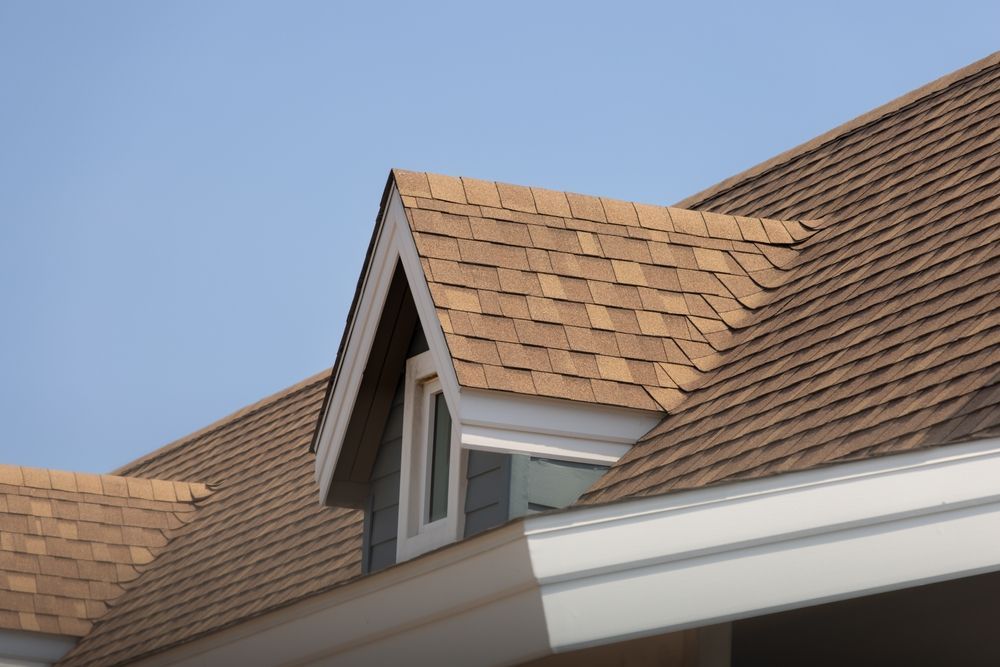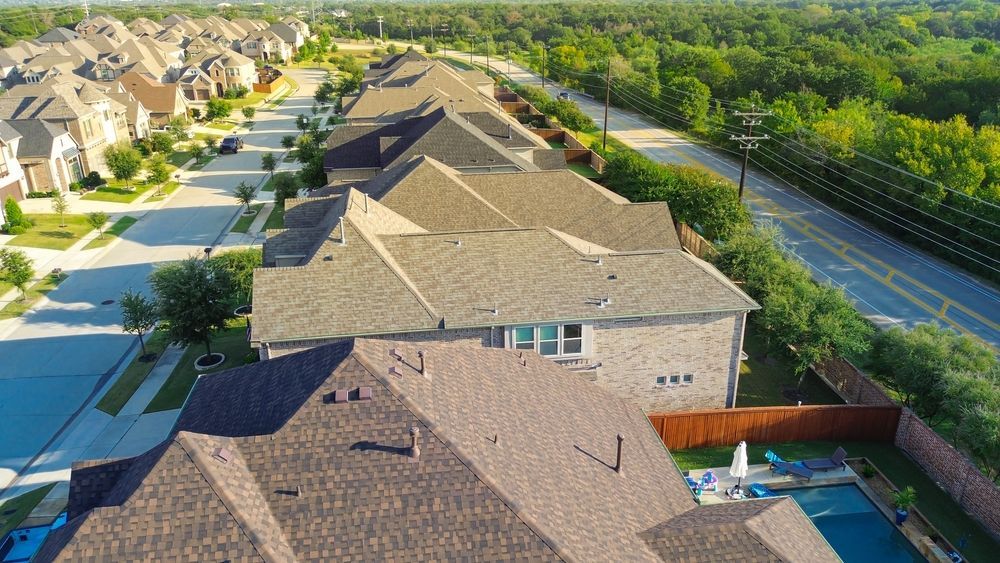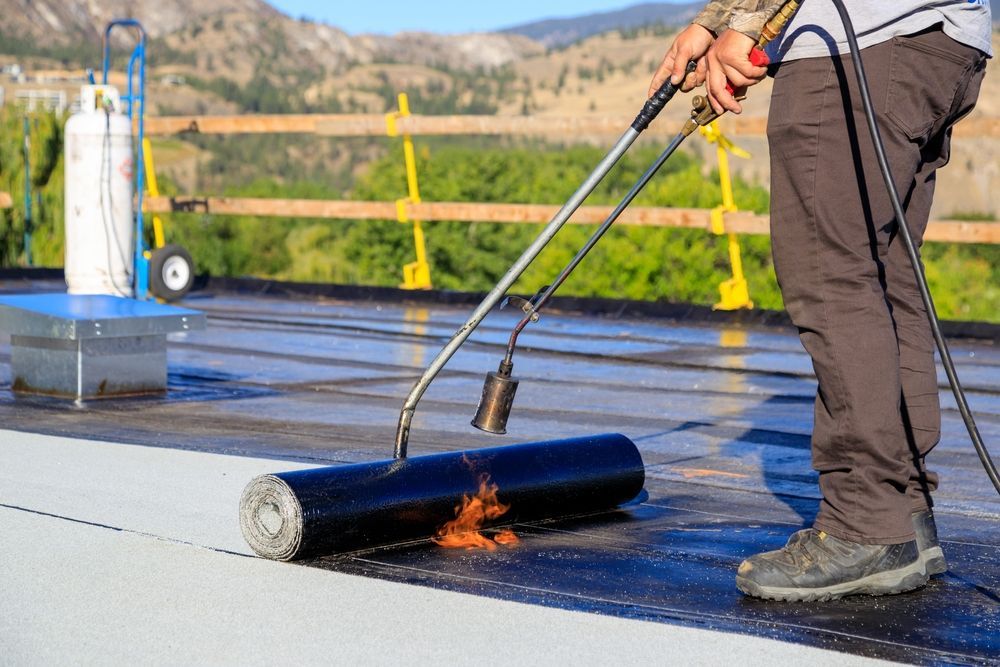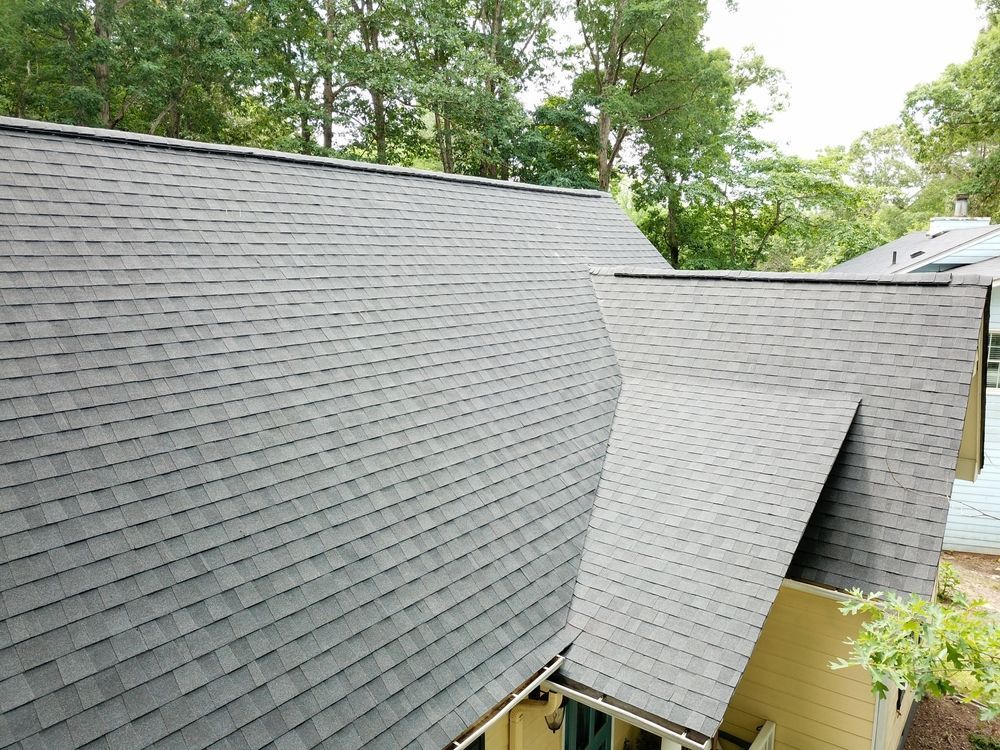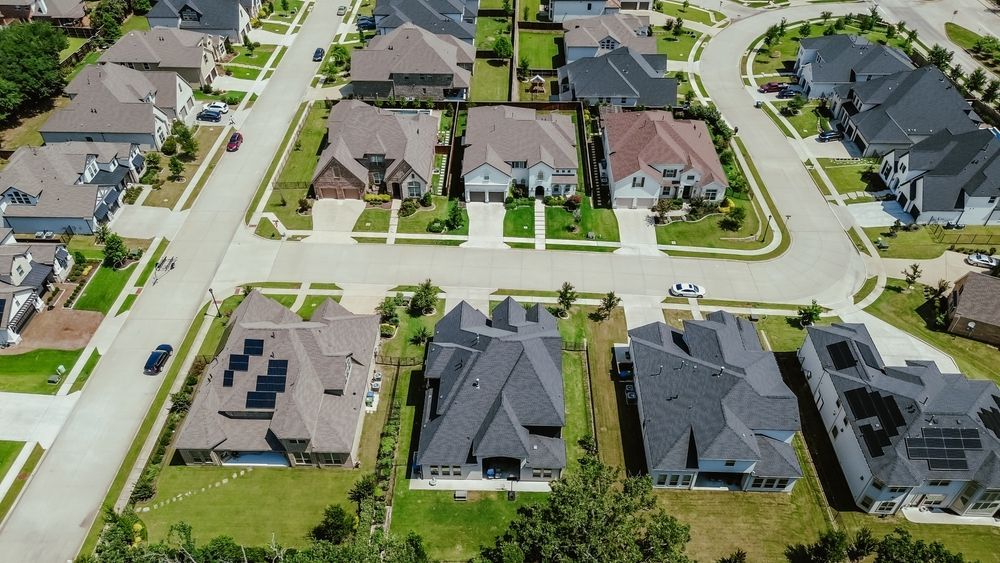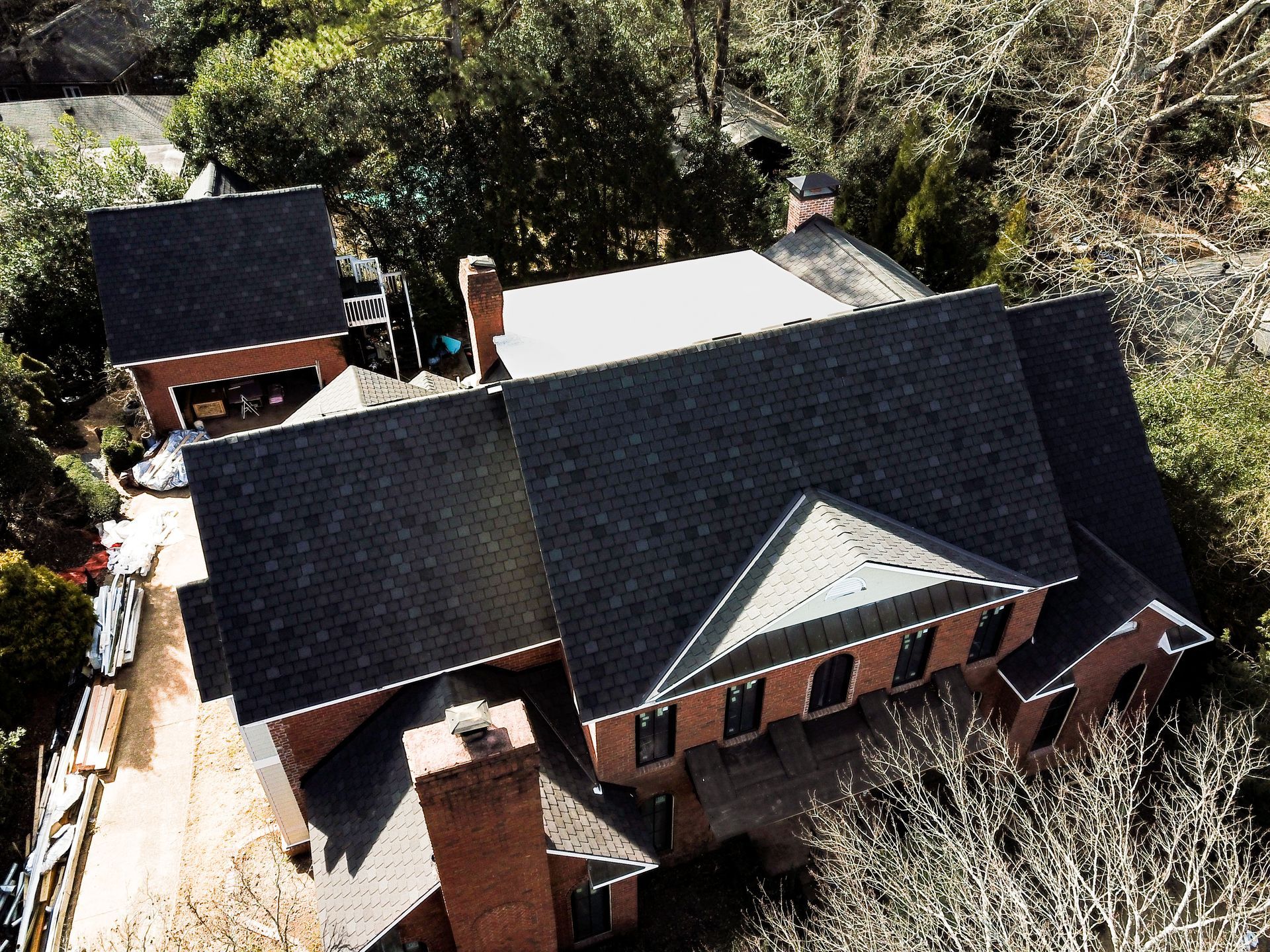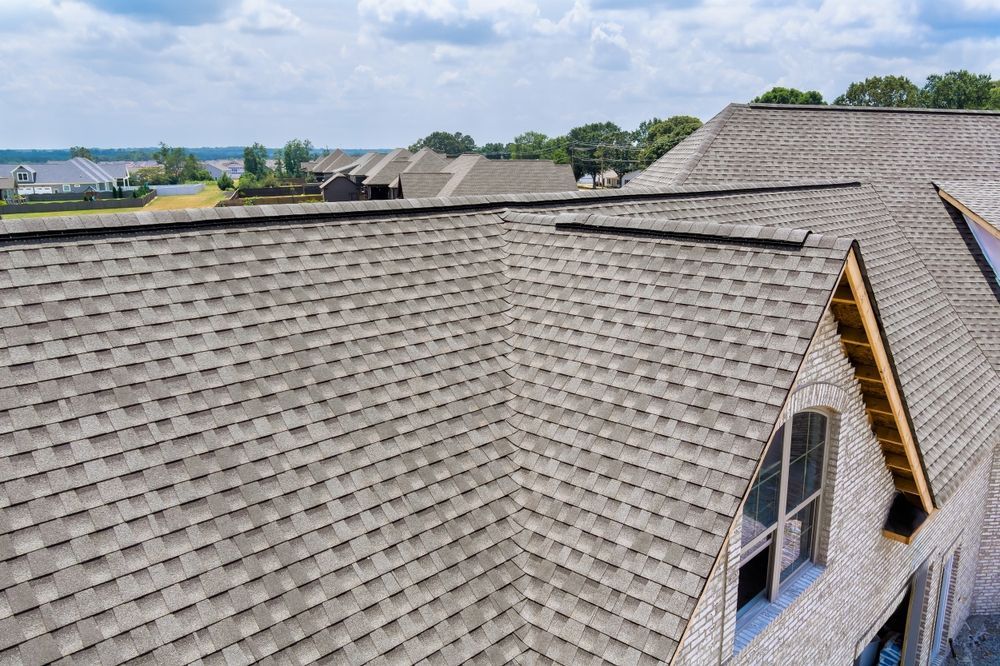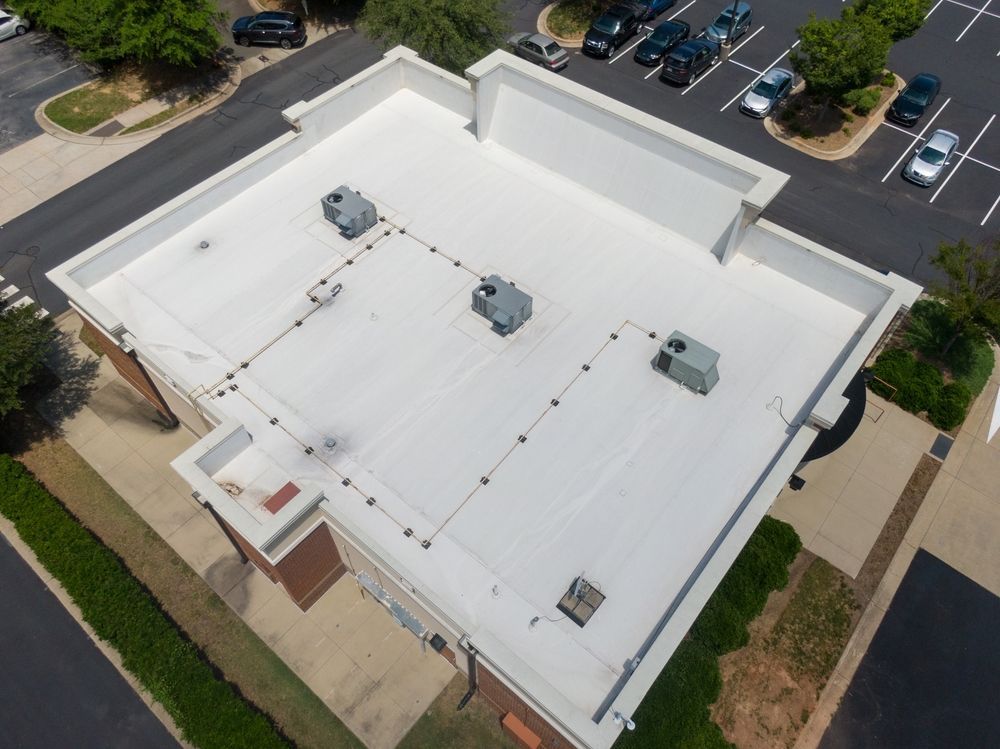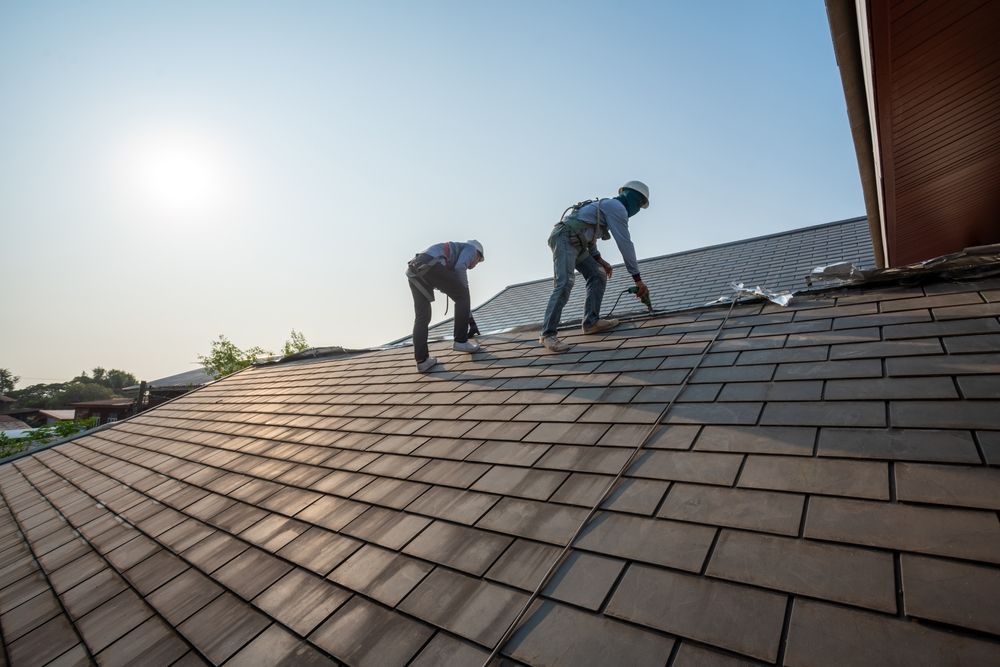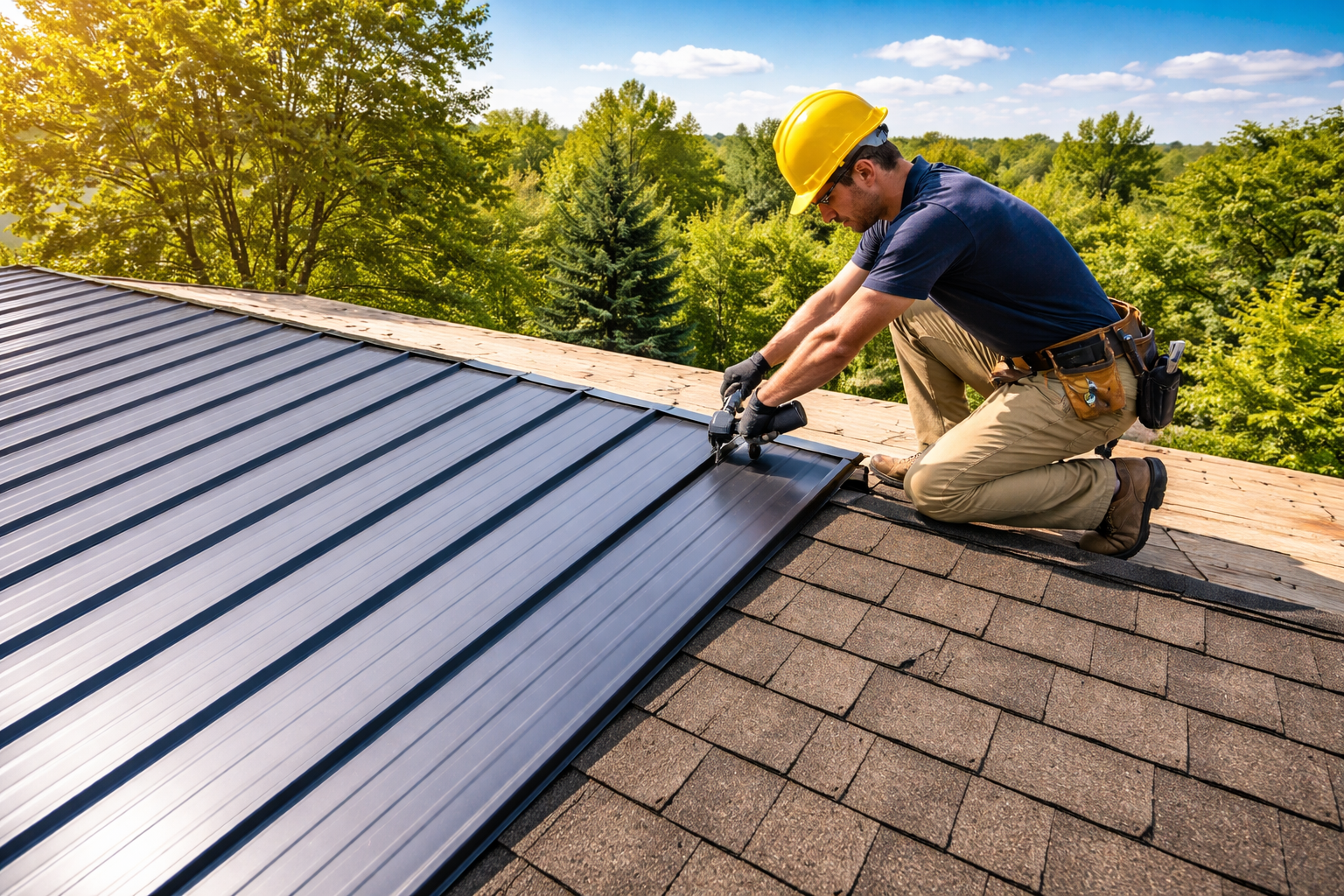Discover Tools for Calculating Atlanta Roof Replacement Costs
How to Calculate the Average Cost of a New Roof in Atlanta: Tools and Tips for Homeowners
If you're thinking about getting a new roof installed, you're probably asking friends, family members, or neighbors for recommendations. That's smart. Referrals to a reputable roofing company in Atlanta can help you get bang for your buck. But before you call around for quotes, you can do a "loose estimate" of the cost yourself. Having a ballpark figure helps you budget correctly and know when a company is charging too much or too little.
Calculating the cost of a new roof in Atlanta can be confusing for many homeowners. Did you know that the average cost of roof replacement can vary significantly based on materials and labor? This article will discuss essential methods for estimating roofing expenses, compare roofing materials, and highlight common mistakes to avoid. Engaging with this content will empower readers to make informed decisions and help them understand their financial options for roofing projects. Ultimately, homeowners will gain clarity on a process that can often feel overwhelming and expensive.
Understanding the Average Cost of a New Roof in Atlanta
Key factors influencing roofing costs include the choice of materials, the size of the roof, and the pitch, all of which significantly impact overall roof replacement costs. Understanding the expenses associated with various roofing materials, the need for proper inspection, and additional elements like flashing and wear can provide homeowners with a clearer picture of potential costs. This section will explore these critical considerations in detail.
Key Factors That Influence Roofing Costs
Several key factors play a vital role in determining the cost of a roof replacement. The choice of roofing materials can greatly affect expenses, as options vary from asphalt shingles to metal roofs, each presenting unique benefits and price points. Additionally, the roof pitch is crucial; a steeper slope can increase labor costs due to the complexity and safety considerations involved in the installation process.
Another significant factor is the need for proper inspection and preparation before replacement. Homeowners must consider any hidden issues that may arise during the initial assessment, such as damage to the underlying structure, which can impact costs. Moreover, elements like flashing and curb installation are essential for the longevity and performance of the roof, which can also influence the overall pricing for the customer.
What Do Different Roofing Materials Cost?
The cost of different roofing materials can vary significantly based on factors such as length, durability, and the potential for future damages. Asphalt shingles are typically one of the most affordable options, making them popular among homeowners. In contrast, metal roofs, while initially more expensive, offer longer life spans and lower maintenance costs, which can be advantageous in the long run, especially in areas prone to leaks.
When selecting roofing materials, it is essential to consider the manufacturing process, as this can impact both cost and quality. Roofing contractors often advise homeowners to account for the installation complexity and longevity of each material. For instance, a high-quality tile roof may require a skilled labor force, increasing initial costs but providing enhanced protection against damages and leaks over time. Understanding these factors can help homeowners make informed choices about which roofing material best suits their needs and budget.
How Roof Size Affects Pricing
The size of a roof plays a crucial role in determining the overall cost of replacement, as larger roofs require more materials and labor. For roofing jobs, the fee is often calculated per square foot, which means that an expansive roof can significantly increase expenses. Homeowners should understand how dimensions affect the materials used, especially when opting for different types of roof shingles, such as asphalt shingles, which can vary in price based on coverage area.
Moreover, larger roofs often experience more rapid depreciation due to exposure to environmental factors, influencing their lifespan and replacement costs. Efficient planning and accurate measurements are essential for homeowners to avoid unexpected expenses. Engaging a professional roofing contractor can offer insights on how to optimize shingle selection and installation processes so the investment delivers long-term value while minimizing potential inefficiencies.
The Impact of Roof Pitch on Cost
The pitch of a roof significantly influences the overall cost of roofing projects, including those in Atlanta. Steeper roofs typically require more safety measures and specialized labor, which can drive up installation expenses. When replacing a roof, the choice between materials like slate or metal roofs may also factor in; steeper pitches often necessitate more durable materials for better performance and warranty protection against weather elements.
Additional Cost Considerations
When calculating the average cost of a new roof in Atlanta, homeowners should consider additional factors, such as the choice of materials and potential property damage that may require attention. Brands like Owens Corning provide a variety of roofing options, including tile roofs that are both durable and aesthetically pleasing. Understanding that the underlying structure, such as decking, may need repair due to water damage or wear is crucial, as these unexpected expenses can add to the overall cost of the roofing project.
Another important aspect is the role of insurance companies in covering repair or replacement costs. Homeowners should consult with their insurance provider to understand their policy’s coverage for roofing materials and any necessary upgrades. This step can help in budgeting for the project, as knowing what costs may be reimbursed can alleviate some financial pressure and assist in making informed decisions regarding material selection and overall investment in property maintenance.
Methods for Estimating Roof Replacement Costs
Online cost calculators offer homeowners a convenient way to estimate roofing expenses, providing a solid starting point for budgeting. Requesting multiple quotes from contractors enables competitive pricing while allowing comparisons. Additionally, identifying hidden costs, such as permits or adjustments due to deductible options from insurance policies, is essential to fully understanding the implications of materials like wood or environmentally friendly alternatives in the construction process.
Using Online Cost Calculators
Homeowners in Atlanta can benefit from using online cost calculators designed for roof replacement. These tools provide an estimate of the roof replacement cost by considering factors such as the size of the roof, material choice, and labor expenses specific to the Atlanta roofing contractor market. By inputting accurate measurements and material preferences, homeowners gain a clearer understanding of potential costs, which can aid in budgeting for their upcoming roof replacement project.
In addition to providing basic estimates, online calculators often factor in energy efficiency options, allowing users to see how investing in certain materials might impact future energy savings. For instance, selecting energy-efficient materials may lead to lower utility bills over time, making the investment more appealing. Utilizing these calculators helps homeowners remain informed about the various factors influencing roof replacement costs, leading to more confident decision-making when planning their roof installation project.
Requesting Multiple Quotes From Contractors
Requesting multiple quotes from contractors is an effective strategy for homeowners to assess the average cost of residential roofing in Atlanta. By contacting several professionals, homeowners can compare pricing, services, and the proposed approaches each contractor takes to handle unique factors like climate and attic conditions. This process not only reveals potential financial risks but also helps homeowners identify contractors who are transparent and reliable.
It is beneficial for homeowners to provide their email address when reaching out for quotes, as this allows for easy communication and the sharing of detailed project information. Homeowners should articulate their specific needs and any observed issues in the attic or roof structure for accurate estimates. Gathering diverse quotes will empower homeowners to make informed decisions while minimizing the risk of overspending on roofing projects.
Identifying Hidden Costs in Roof Replacement
Identifying hidden costs in roof replacement is essential for homeowners in metro Atlanta to develop an accurate roof replacement estimate. Often, unexpected expenses arise from issues like damaged underlayment, inadequate ventilation, or the need for new roof tiles for durability. Homeowners must be vigilant about these potential problems during the renovation process, as they can add significantly to the overall project cost.
It is advisable for homeowners to have a thorough inspection conducted by a qualified roofing contractor before initiating a new roof project. This expert assessment helps uncover any concealed damage that might require additional materials or labor. By addressing these hidden costs upfront, homeowners can better manage their budget and avoid surprises that may arise during the roof replacement process.
Comparing Roofing Materials for Cost Effectiveness
When calculating the average cost of a new roof in Atlanta, homeowners should compare materials like asphalt shingles and metal roofing. Each option presents distinct expenses and durability advantages. A brief overview of tile roofing costs will highlight its value. Emphasizing robust materials can lead to long-term savings and may also influence home insurance considerations, ultimately benefiting the homeowner’s overall expense management.
Asphalt Shingles vs. Metal Roofing
When comparing asphalt shingles and metal roofing, homeowners should consider both the initial expenses and long-term benefits. Asphalt shingles typically have a lower upfront cost, making them an attractive option for budget-conscious homeowners. However, their susceptibility to mildew and shorter lifespan may necessitate more frequent replacements, especially in areas with heavy rainfall. Conversely, metal roofing, while more expensive to install, offers superior durability and can provide better building insulation, leading to lower energy bills in the long run.
Additionally, metal roofs are less likely to sustain damage from the elements, including issues related to valleys and around chimneys, which enhances their appeal for those looking to minimize maintenance costs. Homeowners should also take into account their insurance policy, as certain roofing materials may affect coverage options and claims. Evaluating these aspects will enable homeowners to make informed decisions tailored to their specific needs while enhancing the value and longevity of their property.
Tile Roofing Cost Overview
Tile roofing presents a robust option for homeowners seeking durability and longevity in their roofing choices. With an initial investment that tends to be higher than asphalt shingles, tile roofs offer excellent resistance against harsh weather conditions, including storms. This resilience can be especially valuable for homeowners in Atlanta who want to protect their gable roofs from severe weather events.
The longevity of tile roofing can offset its upfront costs, as these roofs are known to last significantly longer than other materials, often exceeding 50 years with proper maintenance. Homeowners should consider the aesthetic appeal of tile roofs, which can enhance the overall look of their homes while providing reliable protection. Investing in tile roofing not only increases property value but also reduces the likelihood of frequent replacement, making it a sound financial decision in the long run.
Advantages of Choosing Durable Materials
Choosing durable materials for roofing can significantly enhance a home’s long-term value and performance. Higher-end options, such as CertainTeed shingles, may come with a higher price tag initially but provide excellent resistance to extreme weather conditions and reduced maintenance costs. This reliability not only allows better ventilation but also minimizes the chances of needing frequent repairs, making it a wise choice for homeowners looking to maximize their investment in home improvement.
Furthermore, durable roofing materials contribute to energy efficiency, which can lead to lower utility bills over time. Homeowners can engage a knowledgeable roofing contractor to discuss options that not only suit their budget but also address specific needs like ventilation and insulation. By investing in superior materials, homeowners can save money in the long run and enhance the overall durability and aesthetic appeal of their property.
Common Mistakes to Avoid When Calculating Costs
Homeowners often encounter common pitfalls when estimating the average cost of a new roof in Atlanta. Misestimating roof size can lead to under-budgeting for essential materials. Additionally, overlooking permit and inspection fees may result in unexpected costs. Failing to account for the removal of old roofing can also impact the overall pricing. Addressing these factors is crucial for accurate budgeting and planning in roof repair projects.
Understanding these mistakes can provide homeowners with practical insights into their roofing needs, including considerations for new skylights or dormant structures that may require special attention. By being aware of these nuances, homeowners can work effectively with Atlanta roofing contractors for a smoother project experience.
Misestimating Roof Size
Misestimating roof size is a common error that can lead to significant budget issues for homeowners in Atlanta. Accurate measurements are essential because the total cost often depends on square footage. For instance, a flat roof installation using bitumen requires precise calculations for the right amount of material to avoid excess expenses and mistakes. Engaging a professional roofer to conduct a thorough assessment can help mitigate these issues and prevent costly oversights.
In addition, an incorrect roof size can increase the potential for water damage. Oversized or undersized materials can compromise the integrity of the roof, especially with metal roofing systems that rely on an accurate fit for effective protection. Homeowners should prioritize accurate measurements and consider consulting with an experienced roofer to obtain a quote that reflects true costs, enabling better planning and minimizing future complications.
Overlooking Permit and Inspection Fees
Homeowners often overlook the importance of accounting for permit and inspection fees when budgeting for a roof replacement. These fees are crucial as they maintain compliance with building code requirements, which can vary by municipality in Atlanta. Failing to incorporate these costs can lead to unexpected financial strain, as contractors may require additional funds to cover permits, resulting in an overall increase in the price per square foot of the roofing project.
Understanding the significance of permits and inspections not only helps homeowners to avoid surprises but also enhances the reputation of their roofing project. Proper inspections help the construction meets safety standards and that the materials used are appropriate for the selected type of roofs. Engaging a reputable contractor can provide insight into these fees, helping homeowners budget accurately so the roof replacement process proceeds smoothly and efficiently.
Failing to Account for Removal of Old Roofing
Homeowners often overlook the costs associated with the removal of old roofing when budgeting for a new roof in Atlanta. This oversight can lead to unexpected expenses that complicate the overall project. Many roofing contractors factor in disposal expenses when providing quotes, but not accounting for this aspect may leave homeowners unprepared for additional charges, affecting their budget and overall satisfaction with the customer service received.
Furthermore, homeowners should review their insurance policy to determine if roofing insurance covers the removal of previous materials. Understanding the complexity of this process can help facilitate a smoother experience. Having a clear view of all potential costs, including the removal of old roofing, allows homeowners to make informed decisions, ultimately protecting their investments and helping their roofing project align with their long-term goals.
Financing Options for Roofing Projects
Homeowners facing roof replacement due to hail damage or normal wear and tear can explore various financing options to manage costs effectively. Understanding home equity loans can help leverage property value, while insurance claims may cover some repair or replacement expenses. Additionally, alternative loan options provide pathways for homeowners seeking financial support to address roofing needs without substantial upfront costs.
Understanding Home Equity Loans
Home equity loans can provide homeowners in Atlanta with a flexible financing option for roof replacement projects. By tapping into the equity built in their home, they can obtain funds to cover renovation costs, such as new roofing materials and labor expenses. This approach allows for manageable monthly payments while helping homeowners maintain the integrity and safety of their property.
When considering a home equity loan, homeowners should assess their credit score and overall financial situation to secure the best possible terms. Various lenders may offer different interest rates and repayment plans, making it essential to shop around for competitive offers. This financial strategy enables homeowners to address urgent roofing needs without the strain of an immediate out-of-pocket expense, ultimately enhancing the home's value and durability.
Exploring Insurance Claims for Roof Damage
Homeowners in Atlanta facing roof damage should always check their insurance policies to determine coverage for repairs or replacement. Many policies cover damage caused by severe weather, such as hail or wind, allowing homeowners to file claims that may significantly offset their out-of-pocket expenses. By understanding their coverage, homeowners can effectively manage financial burdens while their roofs are restored to optimal condition.
When filing an insurance claim for roof damage, it is crucial for homeowners to document the extent of the damage with photos and written descriptions. This evidence will support the claim and help insurance adjusters assess its validity. Homeowners should also maintain communication with their insurance provider throughout the process, helping them understand any requirements or additional documentation needed to expedite their claims and facilitate a smoother roofing replacement experience.
Alternative Loan Options for Roof Replacement
Alternative loan options can provide homeowners in Atlanta with the necessary funds for roof replacement projects without requiring upfront payment. Personal loans, for instance, can be secured through banks or credit unions, allowing homeowners to borrow a specific amount to cover roofing costs, often with fixed interest rates. This type of financing offers flexibility in repayment terms, enabling homeowners to manage their budgets effectively while restoring their roofs.
Another viable option is a credit card with an introductory 0% APR offer on purchases, which can allow homeowners to finance roofing expenses interest-free for a specific period. By utilizing this approach, homeowners can make monthly payments without accruing additional interest, making it easier to handle larger costs associated with replacing their roofs. Engaging a financial advisor can help homeowners weigh the benefits and risks of these options so they choose the best path for their unique circumstances.
Seeking Expert Advice on Roofing Costs
Consulting with roofing professionals offers homeowners valuable insights into estimating costs and avoiding common mistakes. Utilizing local resources can provide accurate cost perspectives based on regional factors. Additionally, understanding warranty implications helps homeowners gauge long-term investments, leading to informed decisions about their roofing projects. This section will cover these essential topics to aid in effective budgeting.
Benefits of Consulting With Roofing Professionals
Consulting with roofing professionals provides homeowners in Atlanta valuable insights when estimating the average cost of a new roof. Experts can offer detailed assessments that consider various factors, such as the specific materials chosen and the intricacies of the local climate. Their industry experience helps uncover potential issues that inexperienced homeowners might overlook, for a more accurate understanding of overall costs.
Additionally, roofing contractors possess in-depth knowledge of regional trends and requirements, allowing them to provide customized advice tailored to individual projects. They can guide homeowners in selecting the most suitable materials that fit both budget and performance needs. By leveraging their expertise, homeowners can make well-informed decisions, ultimately leading to a smoother roofing project and long-term satisfaction with their investment.
Utilizing Local Resources for Accurate Cost Insights
Homeowners in Atlanta can gain valuable insights by utilizing local resources to better understand roofing costs. Websites offering cost calculators based on regional data can provide a preliminary estimate tailored to specific roofing needs. Engaging with community forums or local contractor associations can also yield recommendations and experiences shared by other homeowners, helping to establish a clearer picture of the necessary budget for a new roof.
Local suppliers can offer estimates based on current material prices and trends in the Atlanta area. Consulting with these resources allows homeowners to receive informed guidance on available roofing options that suit their budgets and preferences. By tapping into these local insights, individuals can make sound decisions, and their roofing project aligns with market standards and enhances the long-term value of their property.
Understanding Warranty Implications on Cost
Understanding warranty implications is vital for homeowners calculating the average cost of a new roof in Atlanta. Different roofing materials come with varying warranty lengths, which can significantly affect long-term expenses. For instance, a roofing system with a comprehensive warranty may cover future repair or replacement costs, providing peace of mind and potentially saving homeowners from unexpected financial burdens.
Homeowners should also consider the details of the warranty, including coverage specifics and any exclusions that might apply. Consulting with roofing professionals can clarify warranty terms, allowing homeowners to make informed decisions about their material choices. By factoring warranty considerations into their overall budget, homeowners can enhance the value of their investment while enjoying adequate protection for their property.
